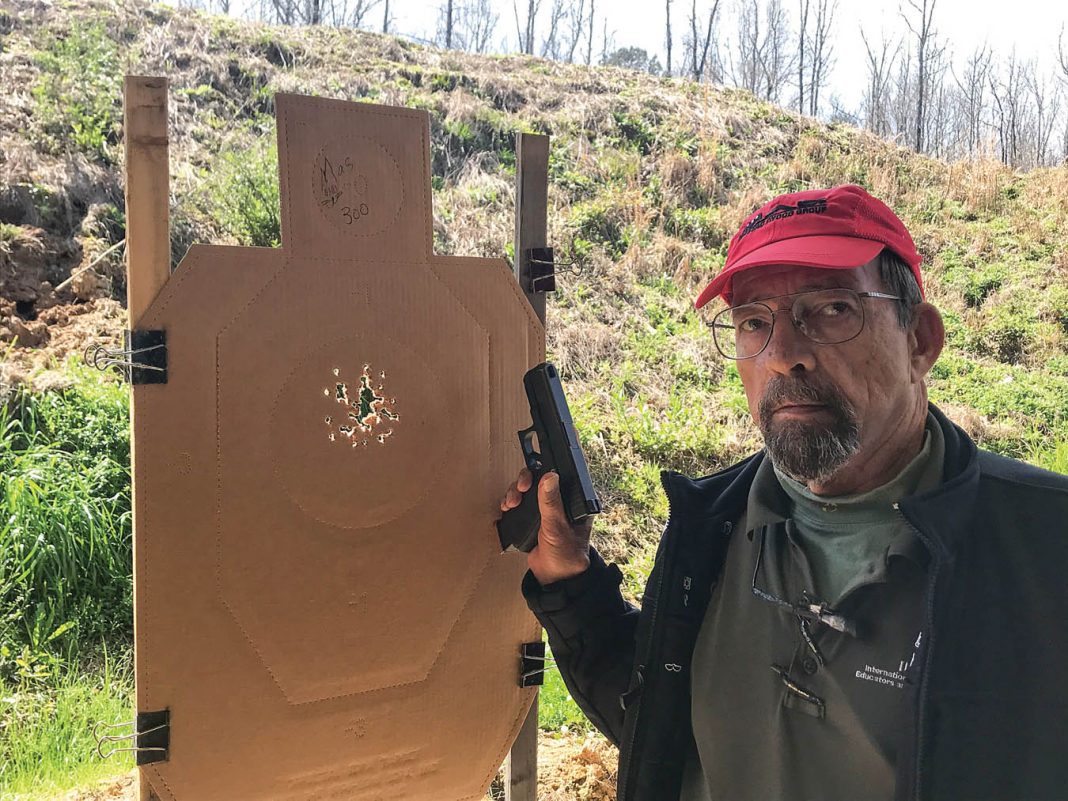With the elections behind us, let’s move on, remembering the advice of Marco Rubio, the victorious pro-gun Republican Senator newly elected in Florida. “We didn’t gain a giant win, we got a second chance,” he is reported to have said, or words to that effect. It’s a sentiment we need to take to heart for the next two years.
Let’s catch up on some promises to the readers here, one of which was suggested reading and Christmas present books. I offer you “Deadly Force” by Chris McNab, subtitled “Firearms and American Law Enforcement From the Wild West to the Streets of Today.” Apparently a Brit, McNab has a good working knowledge of guns, policing, and resources for research. Much of what he writes extrapolates to the armed citizen, who will face the same violent scumbags the cops face, and will face the same courts afterward when the time comes to explain their judicious use of lethal force in defense of themselves and others.
I don’t agree 100% with everything Chris McNab has to say on the topic. (But then, when do ANY of us EVER agree TOTALLY with ANYTHING said by ANYONE?) That said, though, I know many of the contemporary authorities he quotes, mostly as friends and colleagues and occasionally as opponents, and McNab seems by and large to have come up with a solid and realistic overview of issues that are far more complex than they appear to be on the surface.
He never comes right out and says it, but McNab seems to show some sympathy for armed citizens. Analyzing the Texas Tower massacre by Charles Whitman in 1966, he writes, “The body count was soon stacking up on the streets of Austin. Such was the frustration felt by police that they permitted armed civilians to join them in directing fire against the tower. Their role became invaluable, as was acknowledged by Texas Ranger Ramiro ‘Ray’ Martinez, in his later autobiography ‘They Call Me Ranger Ray.’” It was Martinez who, along with brother Austin officer Houston McCoy, killed Whitman atop the tower. McNab quotes Martinez, “I was and am still upset that more recognition has not been given to the citizens who pulled out their hunting rifles and returned the sniper’s fire. The City of Austin and the State of Texas should be forever thankful and grateful to them because of the many lives they saved that day. The sniper did a lot of damage when he could fire freely, but when the armed citizens began to return fire the sniper had to take cover.”
McNab also lauds Mark Wilson, the armed citizen who stopped a psycho’s massacre in Tyler, Texas a few years ago, though he was slain himself in the course of his heroic act. If you’re into armed self-defense – and an honest understanding of what cops have to work with daily in that regard – check out “Deadly Force” by Chris McNab. It came out last year from Osprey Publishing, and I suspect is available on Amazon. I read it at my local library…but then, my community has a really cool library.




Well- as you said, it’s unlikely that any of us will totally agree 100% with anything anyone says, and I’m afraid I have to disagree with this:
“…the armed citizen, who will face the same violent scumbags the cops face, and will face the same courts afterward when the time comes to explain their judicious use of lethal force in defense of themselves and others.”
I think “the cops” by far get way more leniency than the armed (non-cop) citizen; I don’t agree that they face “the same courts” at all. Instances affirming this that stick out most strongly in my recent memory are the “50 shot” killing of Sean Bell in NY, and the shooting of CCW holder Erik Scott in the Costco in Summerlin, NV. The latter I find particularly disturbing because of the witness accounts and the apparent loss of video evidence.
Few people here, I believe, would argue that many cops across the US certainly do their jobs with courage and integrity- I definitely believe this to be true as well! However, the X% of them who abuse their authority and/or exhibit gross incompetence that leads to needless uses of force (especially those that result in deaths) should not be extended a “blanket” of legal deference that belies a certain supposition of the aforementioned courage and integrity.
I don’t mean to be a wet blanket, that’s just how I feel.
Indeed it is on Amazon, currently $15.56. FYI